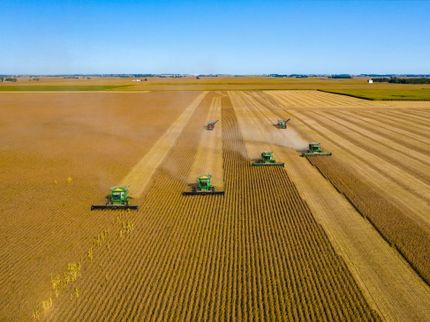Availability of raw materials remains the biggest challenge for food manufacturers
The dependence on globalized commodity flows, with simultaneous geopolitical, pandemic and ecological crises, makes it increasingly difficult for many companies to procure high-quality raw materials in sufficient quantities. Risks along the supply chain have been steadily increasing in recent years. A new study by AFC Risk & Crisis Consult (AFC) in cooperation with the Federation of German Food and Drink Industries (BVE) shows how companies are preparing for the challenges in supply chains that have become complex and unreliable. 412 industry employees responsible for risk and crisis management were surveyed.
Christoph Minhoff, CEO of the BVE, explains on the occasion of the results: "The food industry is experiencing the biggest crisis in 70 years. Harvest failures, supply bottlenecks due to Corona and the effects of the Ukraine war are presenting companies with numerous problems. It is therefore hardly surprising that many companies see the availability of raw materials as the greatest challenge in the future. In view of global risks, regional procurement only partially solves the problem. We must do everything in our power to ensure that international supply chains are made crisis-proof. The food industry shows day after day that it is securing the supply of high-quality food in Germany despite these exceptional situations. Not least because of the pandemic, the food industry is crisis-tested!"
To ease the burden on companies, the BVE calls for ensuring the availability of affordable energy, introducing simplified and more expedient subsidies for the food chain, keeping agricultural commodity markets open and easing their burden, and implementing the overdue reduction of bureaucracy and tax relief for companies. "Otherwise, despite all their resilience to the crisis, companies are slowly but surely reaching their breaking point," Minhoff said.
"Most companies are constantly optimizing their risk and crisis management, above all to meet the requirements of a consumer health protection. Clearly, many companies have become more sensitive and vulnerable to the multiple risk issues along global supply chains. Not least due to the upcoming Supply Chain Act, companies will face new challenges in fulfilling social-ecological compliance. Therefore, it is strongly advised to identify sustainability risks early in the supply chain and to manage them effectively together with suppliers in order to protect own brands and corporate reputation", Dr. Michael Lendle, Managing Director of AFC Risk & Crisis Consult, summarizes the study results. "Most companies do have key market demands from their own stakeholders for transparency in sustainability on their agenda. Now it is a matter of actually meeting these demands of market stakeholders through targeted issue monitoring and efficient risk management along the supply chains," Lendle continues.
This period of crisis-ridden supply chains will see the introduction of the German Supply Chain Due Diligence Act from 2023. The law requires companies to comply with and document social and environmental due diligence along all their supply chains. Sixty-five percent of companies have prepared for the Supply Chain Due Diligence Act (LkSG) or have initiated measures, while 22 percent feel well prepared. However, not all of the companies surveyed fall within the scope of the LkSG, so not all have concrete action plans in place and all responsibilities have been clarified. In many cases, the measures for risk identification are more pronounced than the important classification of risks. It is therefore understandable that there is a strong desire for government support. 70 percent would like to see information offers and 34 percent government certificates. In addition, there is a demand for sufficient transition periods for the extension to smaller companies, clearly formulated requirements, European legislation, and an appropriate interpretation of the LkSG in the case of indirectly affected companies.

Comupter generated Picture
Note: This article has been translated using a computer system without human intervention. LUMITOS offers these automatic translations to present a wider range of current news. Since this article has been translated with automatic translation, it is possible that it contains errors in vocabulary, syntax or grammar. The original article in German can be found here.
Most read news
Topics
Organizations
Other news from the department business & finance

Get the food & beverage industry in your inbox
By submitting this form you agree that LUMITOS AG will send you the newsletter(s) selected above by email. Your data will not be passed on to third parties. Your data will be stored and processed in accordance with our data protection regulations. LUMITOS may contact you by email for the purpose of advertising or market and opinion surveys. You can revoke your consent at any time without giving reasons to LUMITOS AG, Ernst-Augustin-Str. 2, 12489 Berlin, Germany or by e-mail at revoke@lumitos.com with effect for the future. In addition, each email contains a link to unsubscribe from the corresponding newsletter.





























































